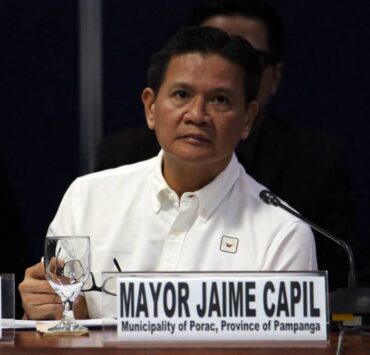Filed COCs fewer than in ’22, ’19 polls; 22% by women

The Commission on Elections (Comelec) on Wednesday said more than 43,000 candidates are vying for 18,280 elective positions nationwide in next year’s midterm polls, based on the certificates of candidacy (COCs) it received during the eight-day filing period that ended on Tuesday.
The total may still be trimmed as the poll body further screens the aspirants for their qualifications and other factors.
At a press conference, Comelec Chair George Erwin Garcia said the total 43,033 who filed COCs were fewer than the 47,583 who vied for 18,100 positions in 2022, and the 44,801 who filed for 18,095 positions in the 2019 elections
Of the 43,033 who filed COCs, 78.2 percent, or 33,652, were male, while 21.8 percent, or 9,381, were female.
A total of 184 senatorial aspirants filed COCs but one, former Defense Secretary Delfin Lorenzana, withdrew on Tuesday.
Of the 160 groups eligible to participate in the party-list elections, only 155 filed their certificates of nomination and certificates of acceptance of nomination (Con-cans). A total of 190 groups submitted Con-cans but these include those who submitted rival sets of nominees or those that were not accredited to participate in the elections.
Final list by Dec. 13
Garcia said the eligible groups that did not submit nomination papers—Smile, Act as One, Kasama, Marino and STL—are deemed to be nonparticipants in the party-list election.
The raffle to determine the order of listing of the participating party-list groups on the official ballot is scheduled on Oct. 18.
All COCs will be uploaded to the Comelec website so that the public may scrutinize them, Garcia said. He added that the Comelec targets to come out with the final and official list of candidates by Dec. 13.
Garcia said the poll body’s law department would start screening the COCs to determine which should be canceled because they were filed by candidates who were dismissed from service by the Office of the Ombudsman with the accessory penalty of perpetual disqualification from holding any elective or appointive public office.
Garcia said even if the candidate had appealed his or her case, the penalty of perpetual disqualification, being administrative in nature, is immediately executory unless a restraining order is issued by a higher court.
He said the cancellation of COCs due to perpetual disqualification to hold public office “will have to proceed at all cost” in recognition of the Ombudsman’s prerogative.
Shooting incident, ‘snatching’
He said the Ombudsman has already informed the Comelec about dismissal orders with additional penalty of disqualification from holding office that have been issued against officials in Albay, Cebu, Tarlac, Pampanga and Leyte-Samar area.
The Comelec chief said the filing period was generally “very peaceful” except for the violence that occurred in Shariff Aguak, Maguindanao del Sur, where one person died and five others were hurt in a shooting incident involving the supporters of mayoral aspirants.
Garcia said the violence erupted after a candidate filed a blank certificate of nomination instead of a filled-up COC and the local Comelec declined to accept the document. This was misinterpreted by the supporters of the candidate as an outright rejection of the filing, triggering a riot.
The local Comelec set up a satellite venue and all candidates were able to file their COCs, he said.
The chair said there was also an incident of a “COC snatching” in a town in Negros Occidental but the candidate was able to fill up a new form and file it before deadline.
Not by money, looks alone
Garcia also assured senatorial aspirants running as independent—especially those not widely known—that they would not be disqualified for being “nuisance candidates” simply because they are poor, not popular or without a political party.
Under Section 69 of the Omnibus Election Code, the commission may, motu proprio (on its own) or upon a verified petition of an interested party, declare a candidate a nuisance if it is shown that he or she only tried to join the race to mock or taint the election process, cause confusion among the voters, or is proven to have no bona fide intention to run for public office.
Garcia said it would not be enough to judge a candidate based on his or her appearance during the COC filing or the details he supplied in the document.
“I personally saw, during the filing period—maybe out of frustration or maybe they really want to serve the people—(that) what they’re saying are all for the good of the country,” he said, referring to the COC applicants.
“Therefore we should not jump to the conclusion that they’re a nuisance just because they are not famous or maybe they are perennial or first-time candidates. That’s not the indication of being a nuisance candidate,” Garcia said.
“To me its really more the seriousness to serve and hold public office, and that seriousness you will not see at the time when the COC was filed, you have to have a background checking of the candidate.”
Reversed by SC
The commission targets to have a ruling on nuisance candidates by Nov. 30, he added.
Two candidates who declared nuisance in the 2022 elections—Norman Marquez for senator and Wilson Amad for vice president—later secured favorable decisions when they raised the issue to the Supreme Court.
The tribunal then ruled that the Comelec committed grave abuse of discretion by declaring them as nuisance for having no bona fide intention to run for office merely because they have no political affiliation or machinery.
Both candidates again filed COCs—Marquez on Oct. 1 and Amad on Oct. 6—to run for senator next year.

















